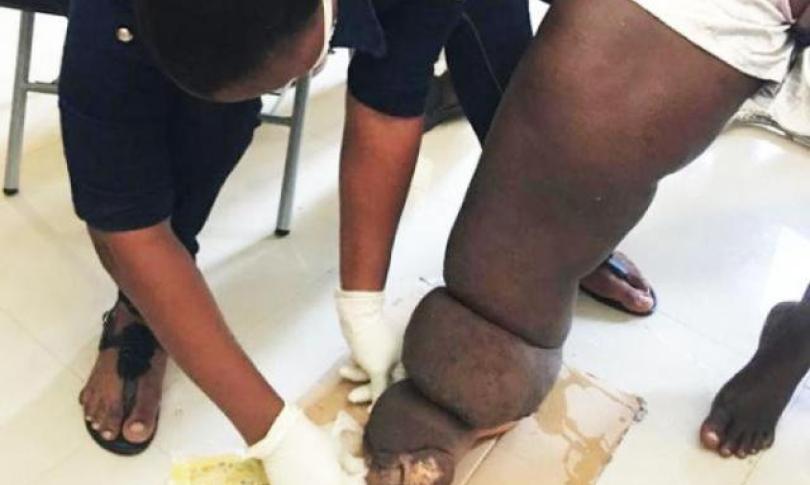
More than 1.5 billion people in the world suffer from Neglected tropical diseases (NTDs) - a cohort of parasitic, viral, and bacterial diseases that cause substantial and a long term illness. Out of this, Africa bears 39 percent of this burden with Ghana being endemic with a considerable number of them - namely Lymphatic Filariasis, Onchocerciasis, Trachoma, Schistosomiasis, Soil transmitted helminthiasis, Buruli ulcer, Yaws, Leprosy, Guinea worm, Human African Trypanosomiasis (HAT), Cutaneous leishmaniasis, Snake bite and Rabies. These diseases come with its attendant disability, psycho-social and economic implications for individuals who suffer these predicaments. The sufferers of these NTDs usually battle neglect, public ridicule, and loss of self-esteem. Experts say public perception about the diseases makes it challenging for the sufferers to co-exist with others.
Available literature by CK Ahorlu et al on public perception about most common NTDs in Ghana is usually likened to hereditary, witchcraft or bad omen, “dirty blood” in some communities. As such, some believe the condition could be corrected or managed through hard work, excessive drinking of palm-wine and excessive sexual activities.
But Ghana, over the years has devised many strategies to rid the country off NTDs, through its master plan of the National Program led by Dr Kofi Marfo. The strategies include situational analysis, NTD strategic agenda and operational framework. This has seen the country eliminating 3(Trachoma, Guinea worm and Human African Trypanosomiasis) out of the 14 NTDs and still counting. With the milestones chalked so far by the country, Dr Marfo, national NTD programs Manager asserts a multi-sectorial approach is needed to achieve the set target by World Health Organization in 2030. “We have come a long way as a country with the strategies for eradication, but a concerted efforts form all stakeholders will speed up the process towards achieving our set objectives and target by 2030”.
A publication in Acta Tropica by S.D Mante as part of the West African Filariasis Project, revealed an overwhelming number of citizenry suffering from all forms of NTDs due to stigmatization, cost, low level of knowledge on the conditions and fear of being mocked and rejected. However, Professor S. D Mante a consultant, on the Africa Filariasis Project says there is a need for reorientation and sensitization on the NTDs to reduce the level of “cooked” perceptions about the conditions. This he said will go a long way to help reduce stigma and enable the sufferers of these NTDs to seek care early instead of shying away.
“On the West African Filariasis project we encountered a substantial number of people suffering from all forms of NTDs and hydrocele is one of them. The numbers were huge when we started in 2012 and I can say it has reduced a bit but the issue of stigma and low level of knowledge about these conditions are not helping, we need to reorient and sensitized all parties involved”.
Cost remains one of the barriers to access to care for many who suffer NTDs in Ghana especially those with obvious complications that need surgical intervention. Most of such interventions are taken up by foreign based benevolent organizations through a philanthropic works. Though Ghana’s health insurance scheme is supposed to cover public health interventions for free, most of such cases required additional funds to enable patients to foot their bills for care.
It is evident that, a holistic fight against NTDs will have to be informed by painstaking research, as such Prof Alex Debrah, Researcher, at Kwame Nkrumah University of Science and Technology believes the country can set up research fund to augment external funding other than the total dependence on donor support.
Ghana could become the first highly populated Sub-Saharan African nation to achieve its NTD elimination target by the WHO in 2030. But, that will only happen if health-systems are strengthened and mobile health-activities continue to enable NTD disease reduction.
However, this year’s 2021 World NTD Day celebrations - second year in a row will ignite efforts and action for the involvement of the international community and the private sector in Ghana to actively take part in the fight against NTDs and say “No to NTDs”.
